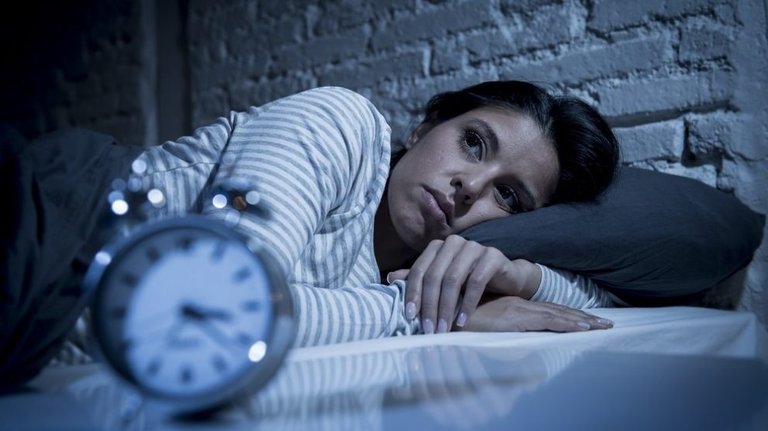
Living in a sleep deprived state due to constant lack of sleep can literally drive you crazy!
As those who suffer with insomnia or experience lack of sleep for other reasons; nursing babies, looking after waking children, caring for others, working shifts, unsociable hours can testify. Living in a state of chronic exhaustion can be completely debilitating.
Having recently gone back to experience this, as a result of my son waking through the night following a period of illness over a month ago. The remedy Cocculus has been a life saver, as many Mums will agree!
Its recommended that the average night sleep for an adult is 7-9 hrs, but this can feel like a complete luxury for those experiencing insomnia.
As homeopaths this can be a common complaint we’re presented with. We know that it’s vital for us to get good sleep for our bodies to heal. Our bodies completely slow down, with heart and lung activity reduced to a minimum, body temperature, blood pressure and pulse rate fall and our muscles relax, bliss! Not forgetting the importance of dreaming, helping us to process the day and life’s events on the deeper, subconscious level.
But if you’re plagued with on-going lack of sleep, this is most certainly having a bigger and deeper impact on your physical, mental and emotional health and well-being. Not just for the physiological reasons but the bad habits that can start forming to help keep going; increased caffeine and stimulant intake to keep going, impaired judgement, even reaching out to sleeping meds or alcohol for help. Let’s not forget the strain this can put on your relationships due to becoming over reactive, irritable and snappy.
I must point out the importance of taking the time to put the pieces of the jigsaw together and establish the cause! These can be varied and on different levels, this information helps me to decide on how and what to prescribe to my patients. For some it can be a short lived stressful life phase, which is causing them worry, preventing them from switching off and going to sleep. It can be hormonal, menopause can have a big impact on sleep or chronic, because of something far deeper mentally or emotionally.
So fortunately, homeopathy has another great toolkit to help with sleep problems, without suppressing the symptoms, numbing the emotions or sedating the whole body and mind. Choosing the right remedy helps to relax the mind, nervous system and muscles easing back into a healthy sleep pattern.
I’ve selected a handful of remedies that can really help with insomnia and sleep issues, giving an overview of the keynotes and modalities, assisting in the differentiation between the different remedies.
Arsenicum Album (Arsen Alb):
- sleeplessness due to anxiety about health, money – fastidious – chronically anxious – chilly people
Chamomilla (Cham):
- great soother of fired, jangly nerves – irrational irritability
Calcerea Phosphorica (Calc Phos):
- difficulty getting to sleep – relaxation difficult due to tension in neck and shoulders – can’t sleep before 12am – difficulty sleeping after illness.
Cocculus Indicus (Cocc):
- disturbed sleep – dizziness – neausea – feels anxious – anxious dream/nightmares – sleep deprivation from nursing/caring for others.
Coffea Cruda (Coff):
- overactive/excitable mind – too much caffeine – can’t switch off.
Ingnatia Amara (Ign):
- difficulty sleeping from grief, bereavement, disappointed love – unstoppable yawning – changeable – hysteria.
Kali Phosphoricum (Kali-p):
- can’t sleep due to nervous strain – after period of intense work/study – nervous exhaustion – empty feeling in pit of stomach – recurrent nightmares/night terrors when under pressure.
Nux Vomica (Nux Vom):
- hard working – impatient – over stretched – sleeplessness from constantly thinking about work, the things they have to do – waking 4am and unable to get back to sleep – indigestion from rich food.
Alongside treatment it’s really important to ensure that some simple, healthy self-care strategies are also implemented; stop using electronic devices a minimum an hour before bed, putting in place a relaxing bedtime routine triggering your body and mind to relax, don’t have any caffeine 6 hours before bed, try to get out in fresh air daily, try not to eat late at night.
@sallylloyd
@alanfreestone
nice info.. check my post please
If you have an interest in sleep (and how to get better sleep), I highly recommend this book called Why We Sleep: The New Science of Sleep and Dreams by Matthew Walker. It blew my mind the kind of research they've been doing on sleep and how it affects us human beings. I now put a much higher priority on getting enough sleep each night.
Totally @chernern, my husband recently read research that links lack of sleep to dementia and began to really prioritise his sleep.
They discovered the brain shrinks when we sleep, opening up lymph pathways in the brain that remove the waste products of brain cell combustion. Without this we literally die, one brain cell at a time.
I like this post Kirsten. I found it interesting and readable. Useful list of remedies at the end. I’m guessing you’re open to offering people sleep consultations too, right?